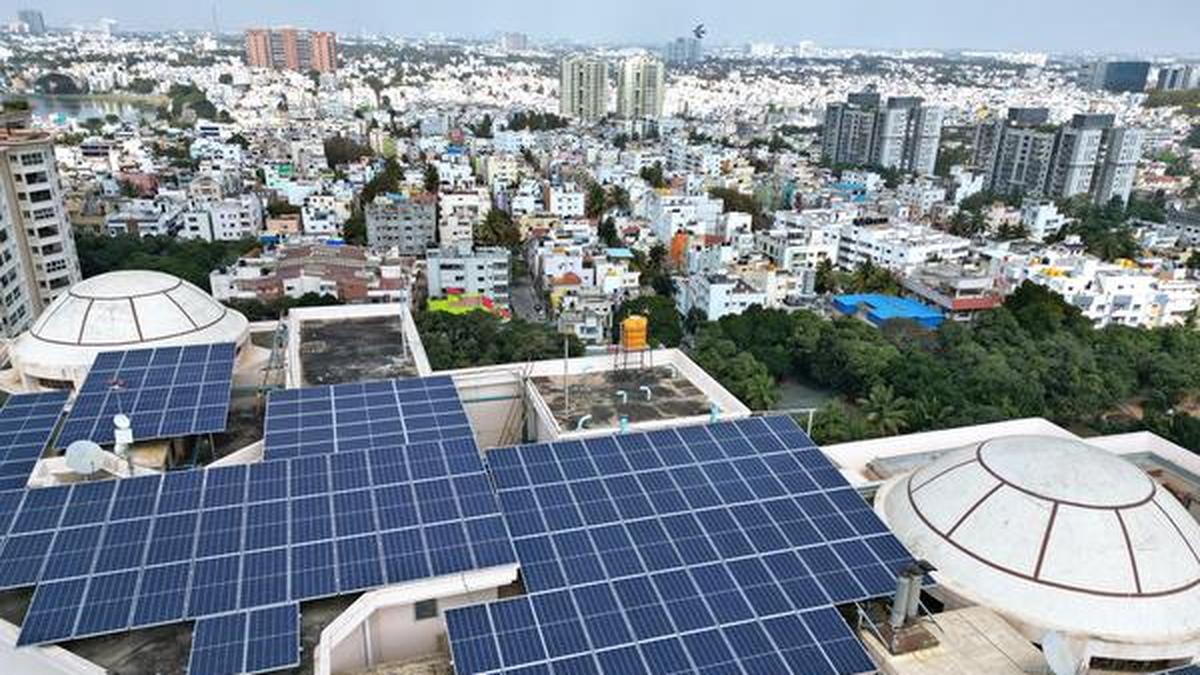
Karnataka government issues guidelines to escoms for implementation of solar rooftop schemes
The Hindu
Karnataka Energy Department issues guidelines to accelerate solar rooftop schemes, including SOP development and penalties for delays.
Following the slow progress of solar rooftop implementation in Karnataka, the Energy Department recently issued guidelines for all electricity supply companies (escoms) to expedite the solar rooftop schemes on a larger scale.
The new guidelines include several steps like development of a Standard Operating Procedure (SOP) by the nodal agency — which is Bangalore Electricity Supply Company (Bescom) — for implementation of Solar Roof Top Photo Voltaic (SRTPV) systems, a common website for processing solar rooftop applications, immediate implementation of any regulation issued by Karnataka Electricity Regulatory Commission (KERC) regarding SRTPV, among other things.
Government has also told escoms to penalise officers who delay the SRTPV synchronisation process, according to KERC guidelines. Additionally, Bescom has been asked to ensure that the online solar billing software is functional by May 31 and also to set up a mobile app on the lines of smart meter app for synchronisation. “The final testing is being conducted for the billing software. We are hoping to issue online bills from June 1,” a Bescom official said.
The new order was issued on May 24 based on the recommendations of the expert committee headed by Mahantesh Bilagi, Managing Director, Bescom. The committee had recommended that escoms should focus on domestic consumers who would install rooftop solar plants of 1 kilo Watt (kW) to 3 kW capacity, for implementation of solar schemes.
“Our focus is on those consumers who have not applied for Gruha Jyothi scheme as the beneficiaries of the scheme are not keen on installing SRTPV systems. Especially in the Bengaluru Metropolitan Area Zone (BMAZ) region, Gruha Jyothi penetration is only around 65% and hence the non-benefitting consumers here are our target for these schemes,” Mr. Bilagi told The Hindu.
While Bescom’s current installed rooftop solar capacity is around 299.76 Mega Watts (MW), officials said that total capacity for solar installation in the city is around 2,800 MW according to an aerial imagery study conducted by Center for Study of Science, Technology and Policy (CSTEP).
Mr. Bilagi said that the sub-division officials recently underwent training about implementation of SRTPV and have now been given targets to achieve Bengaluru’s solar rooftop potential. While Bescom has received 12,061 applications under the PM Surya Ghar scheme since February, it aims to bring up the installed capacity to at least 500 MW by the end of this financial year.











